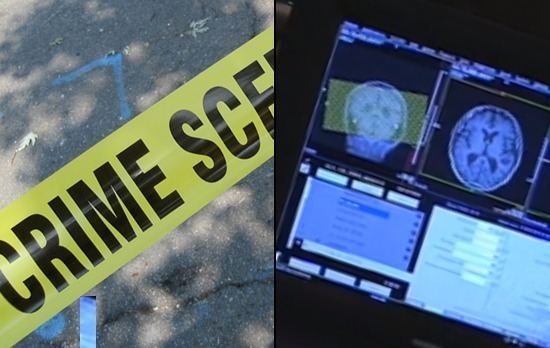Study: Judicial opinions mentioning neuroscientific evidence doubled between 2005 and 2012
 The Brain Gets Its Day in Court (The Atlantic):
The Brain Gets Its Day in Court (The Atlantic):
“The crime was brutal…Detrich is still on death row today as the appeals process drags on, but in 2010, his lawyers achieved a victory of sorts. They claimed that Detrich had received “ineffective assistance of counsel” at his trial, because his original legal team had failed to present evidence of neuropsychological abnormalities and brain damage that might have swayed the court to give him a lesser sentence. A federal appeals court agreed. The ruling said, in effect, that Detrich had been denied his Constitutional right to a fair trial because his lawyers hadn’t called an expert witness to talk about his brain.
That judicial opinion is just one of nearly 1,600 examined in a recent study documenting the expanding use of brain science in the criminal-justice system. The study, by Nita Farahany at Duke University, found that the number of judicial opinions that mention neuroscientific evidence more than doubled between 2005 and 2012.”
Study: Neuroscience and behavioral genetics in US criminal law: an empirical analysis (Journal of Law and the Biosciences)
- Abstract: The goal of this study was to examine the growing use of neurological and behavioral genetic evidence by criminal defendants in US criminal law. Judicial opinions issued between 2005-12 that discussed the use of neuroscience or behavioral genetics by criminal defendants were identified, coded and analysed. Criminal defendants are increasingly introducing such evidence to challenge defendants’ competency, the effectiveness of defense counsel at trial, and to mitigate punishment.
- Conclusion: The use of neurobiological evidence in criminal cases may draw serious criticism and justifiable concern by scientists. But neurobiological evidence also has improved the criminal justice system through better competency determinations and reconsiderations about the role of punishment in society. And neurobiological evidence at times replaces what was even shoddier evidence that we relied about to make inferences about the individual capacities and behavior of a criminal defendant. Given the recent rulings about the neurobiological evidence and ineffective assistance of counsel, it’s safe to assume that neurobiological evidence is now a mainstay of our criminal justice system.


